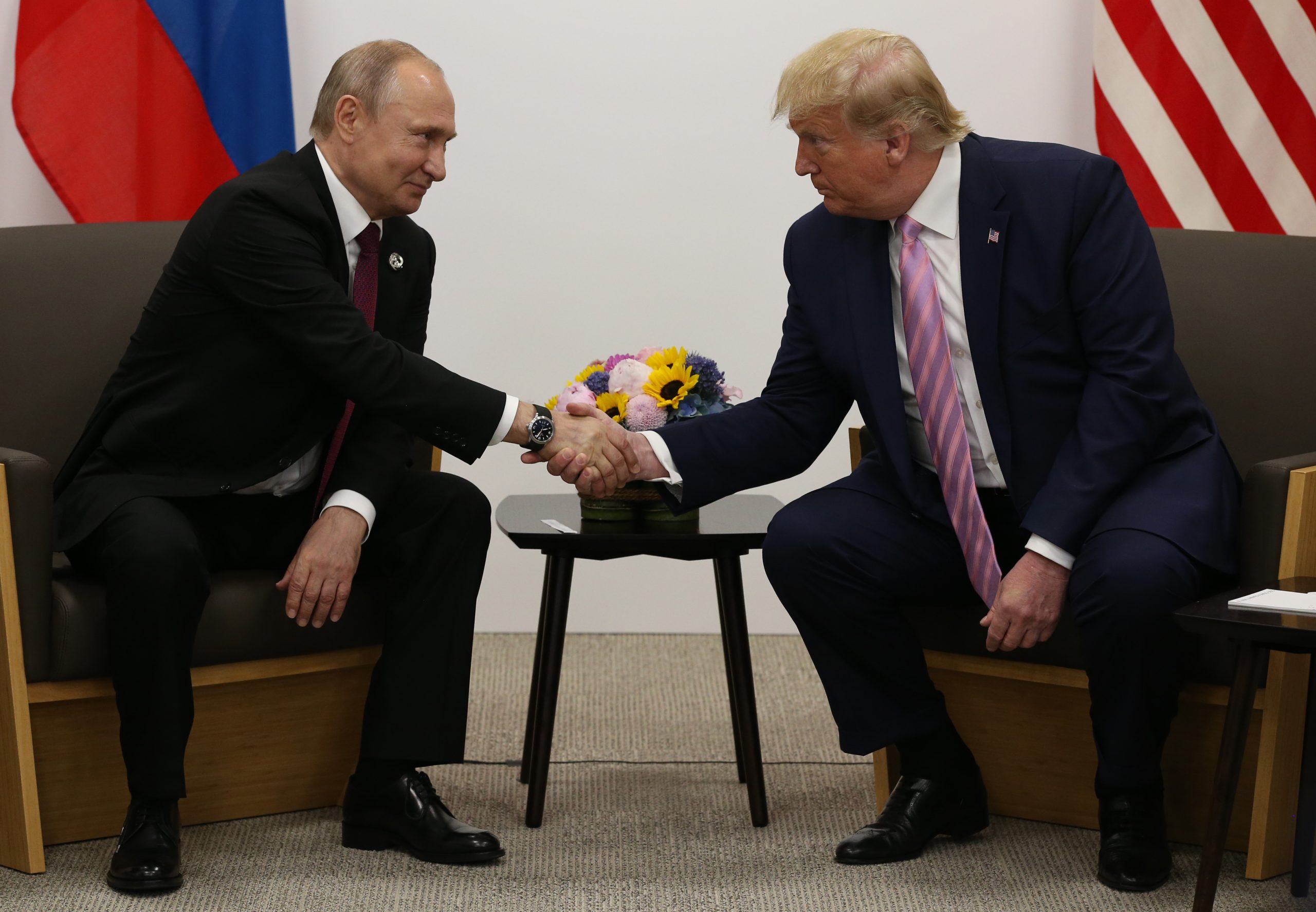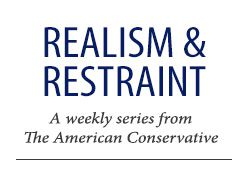U.S.-Russia Relations: In Need of Emergency Resuscitation, Stat!

U.S.-Russian relations are worse than at almost any point since the end of the Cold War, and debate over any policy related to Russia has become more toxic than it has been in decades.
The president has managed to combine a seemingly friendly personal rapport with Russian President Vladimir Putin with his habit of supporting only those policies that worsen relations with Moscow. At the same time, his domestic partisan critics immediately cry foul over anything that they think they can twist into proof that Trump is somehow doing Russia’s bidding. We saw this most recently with the collective panic among members of Congress and the foreign policy establishment over the modest reduction in U.S. forces in Germany, which was widely denounced as a “gift” to Putin.
The anti-Russia hysteria of the last four years has drowned out almost all reasonable discussion of possible cooperation between our governments, and that has to change if there is to be any chance of preventing a further breakdown.
The overall relationship has been allowed to deteriorate while the administration has been actively wrecking the arms control architecture that both countries created together. Trump has managed to find the worst position possible. Despite his professed interest in good relations, he refuses to cooperate with Russia in the one area where it would be uncontroversial and even welcomed, namely the extension of New START. He pays the political price of seeming to want to accommodate Russia in some areas while assuming all of the costs of confrontation and noncooperation everywhere else. Most of his critics in Congress are so eager to portray him as working for a foreign power that they squander the opportunity to offer a sane alternative to the president’s generally hawkish agenda. Congress consistently votes for more sanctions and places so many conditions on them that it is very unlikely that they could ever be lifted as part of a future agreement. Unsurprisingly, those sanctions have completely failed to change the Russian government’s behavior.
It is obvious that U.S. Russia policy is in desperate need of reimagining. That is the argument that dozens of scholars and former officials are making in a new open letter that was first published last week. The letter’s signatories come from across the political spectrum, and they include several former ambassadors to Russia and Cabinet members, as well as some of our top arms control negotiators. They make a simple but important case that the U.S.-Russian relationship is too important to international security to be left so carelessly unattended and mismanaged, and they make a number of sensible recommendations to begin to correct the dangerous drift in that relationship.
One of the most important recommendations is the simplest: fully resuming normal diplomatic relations that have been cut back in the last five years. They write:
It makes no sense for two countries with the power to destroy each other and, in 30 minutes, to end civilization as we know it to lack fully functioning diplomatic relations. In the wake of the Ukrainian crisis, key governmental contacts were severed, consulates shuttered and embassy staff drastically reduced. Too often we wrongly consider diplomatic contacts as a reward for good behavior, but they are about promoting our interests and delivering tough messages. We need them as a matter of essential security to minimize the misperceptions and miscalculations that can lead to unwanted war. Restoring normal diplomatic contacts should be a top priority for the White House and supported by the Congress.
In addition, they call for extending New START and protecting the Open Skies Treaty. Both of these treaties stabilize relations between our governments and enhance the security of the U.S. and our allies, and they can serve as the foundation for further arms control negotiations as needed. The signatories also recommend that the U.S. become more flexible in its use of sanctions so that they might serve as aids to negotiation rather than the obstacles that they have become. There are simply too many overlapping sanctions on too many issues, and that guarantees that Russia won’t make concessions anywhere. Because the conditions for obtaining sanctions relief are so far-fetched, this has the effect of making Russia accept sanctions as a permanent reality. The U.S. doesn’t just need to be more flexible in its willingness to lift sanctions, but it also needs to be more reasonable in what it demands as the price of sanctions relief.
The letter also acknowledges that the Russian government’s perception of its interests is unlikely to change very much no matter who is in power in Moscow. They write:
Ultimately, the reality is that Russia, under Vladimir Putin, operates within a strategic framework deeply rooted in nationalist traditions that resonate with elites and the public alike. An eventual successor, even one more democratically inclined, will likely operate within this same framework. Premising U.S. policy on the assumption that we can and must change that framework is misguided.
The U.S. does not have to endorse or like the way that Russia understands its interests to respect the fact that this definition of their interests isn’t going away. There are lines that Russia has drawn in its immediate neighborhood that the U.S. shouldn’t try crossing, and we have seen at least twice in the last 12 years just how disastrous it can be for neighboring countries when they are caught in the middle of a tug-of-war between the U.S. and Russia. Our government has also learned at the expense of Ukraine and Georgia that the U.S. is not really prepared or willing to protect these countries, so we shouldn’t be encouraging them in the false hope that one day they will become our allies.
The recommendations in the open letter are remarkably similar to the ones contained in the concluding chapters of Putin’s World, Angela Stent’s book on Russia and its international relations. Like the authors of the letter, Stent acknowledges that the areas for U.S.-Russian cooperation are few and limited, but they are important enough that they cannot be neglected any longer. She identifies arms control and nonproliferation, Syria, Ukraine, and terrorism as the areas where U.S.-Russian cooperation is both possible and desirable. I would add fully restoring the Joint Comprehensive Plan of Action (JCPOA) with Iran as another example of how the U.S. and Russia could work together in the future, but that is only possible if the U.S. recommits to the agreement that it violated. There may be other issues that haven’t arisen yet where the U.S. and Russia might successfully work together, and those will have to be judged on a case-by-case basis as they come up, but to make that cooperation possible there needs to be an effort to thaw the relationship and the U.S. should be willing to make the first move.
Perhaps the most important point that Stent makes is that the U.S. and its allies need to understand that Russia cannot be isolated and that efforts to isolate them economically and diplomatically over the last five years predictably failed. There are simply too many other countries that don’t see Russian behavior the same way that Western governments do, and there are many that don’t care enough about that behavior to let it get in the way of doing business with Russia. The assumption that the U.S. and its allies could coerce Russia into changing course by inflicting economic punishment on them misunderstood how committed their government was to its positions and how many other partners they could turn to if necessary.
Two subjects that receive little or no attention in Stent’s conclusion and the open letter that need to be addressed are NATO expansion and missile defense. These are somewhat surprising omissions considering how central they have been to poor relations with Russia over the last twenty years. Russia is strongly opposed to both, and on close examination the U.S. could back away from both without giving up anything important. Further NATO expansion gains the alliance nothing except more liabilities and territory that it cannot realistically defend. The alliance should put a moratorium on adding any more members. For its part, missile defense is as politically harmful as it is technically useless. Missile defense worries the Russians without actually making Europe or the U.S. more secure, and it represents a boondoggle that wastes billions of dollars every year. 
There is no magic transformation that can resolve the outstanding differences between the U.S. and Russia, but there is a way to manage those differences and cooperate in spite of them. The U.S. shouldn’t be trying to foment political upheaval in Russia or in any of the countries along its borders, and it should stop behaving like a revisionist power with respect to international law and state sovereignty. To do this will require a more mature and restrained foreign policy that accepts that Russia has legitimate interests, and that requires a major overhaul in how administrations from both parties have approached dealing with Moscow. It is this kind of constructive engagement that the U.S. needs to practice with Russia.
Comments